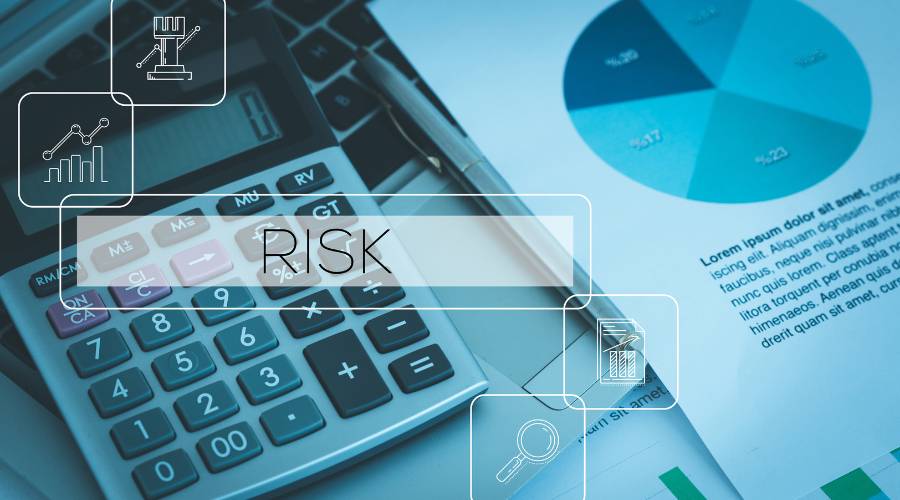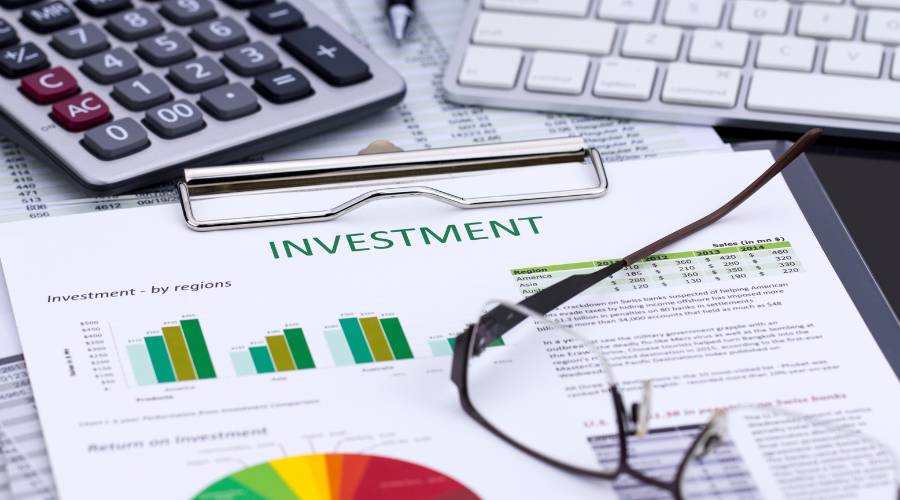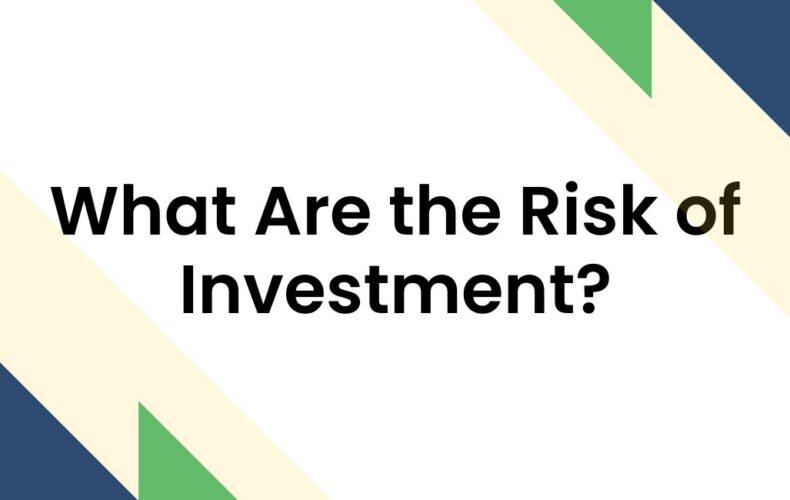What Are the Risk of Investment?
Investment often accompanies both minimal (treasury bonds, for instance) and imminent (as in the case of stocks and commodities). Economists often attribute investment risks to technical terminologies such as systemic and systematic factors. However, a seasonal investor understands that a profitable investment is one where the investor focuses more on risk mitigation. Furthermore, successful business people tie high-risk investments to good returns. Therefore, risk management is a critical aspect of a profitable business. Each asset, despite its nature, has its peril.
In this article, you will have a closer look at the most common risk that leads to money loss. This article will also inform you about the different risk management alternatives and how to apply them to your investment decisions.

Type of Risk in Investment
Dividend Risk
This type of risk applies mainly to people who rely on stock dividends. However, dividend risk affects elder individuals during retirement. Once a company terminates dividends, its constituent stocks lose value. Moreover, investors will likely lose their stocks once a company completes the stock dividends.
Management tip: You can purchase a put option where the delta value remains high even when the stock price drops.
Political Risk
Have you ever heard of the significant drops and increases in oil prices?
Most investors are concerned with the prices of fuel. The prices are affected chiefly by political factors and government policies. When oil prices fluctuate, seasonal and permanent investors face significant investment perils. Both artificial and technical hazards cause the oil crisis, including terror attacks and commodity market problems. The South and North Korean conflict has affected world oil markets and yielded investors a plight in their investment journeys.
Management tip: The political risks are challenging and almost impossible to control. However, as an investor, you must stay informed of the socio-political status and take warnings seriously before an economic crisis strikes.
Business Risk
Most investors are familiar with this type of investment risk, given its popularity in companies earning reports. This type of investment risk happens when an aspect arises and impacts the company negatively, such that the investment loses value. Contributing factors of business risks are leadership changes, management fallouts, and product quality degradation.
Owning a company’s stocks is complicated and disappointing since you cannot forecast risks. It is difficult to control factors like natural disasters, floods, and fires. Nonetheless, the business risks lead to the loss of customers and a reduction in market penetration.
Risk Management Tip: Risk acceptance, transference, and avoidance are typical management practices. Before investing in a company, you must evaluate its business practices and history.
Call Risk
Call risk entails the danger that a bond lender will cash a callable bond before it matures. If a company repays the callable bond earlier, it will pay lesser interest rates without a loss on principle. However, if you are an investor who relies on coupon rates, you can encounter a significant loss of income on loss coupons due to call risk.
Management tip: Invest in non-callable bonds if you rely on coupons for monthly living expenses. Similarly, you can exchange your bond funds through a diversification model to enjoy solid returns.

What to Do about Investment Risks
Any investment strategy presents the different risk types mentioned above. How you react and mitigate the risks determines how sizeable your investment rewards are. The tips provided above are suitable for the best performance. Likewise, they apply to both long-term and seasoned investments.
Below are common real-world risks you might face.
An underperforming portfolio
Long-term performance is every investor’s primary focus since short-term market trends are unpredictable. However, gauging long-term performance is nearly unattainable given the unpredictability of market changes annually. However, as a seasonal investor, you could;
- Set realistic growth expectations with percentage benchmark expectations depending on stock exchange rates.
- Following mitigation strategies for asset allocation by age.
By following the above tips, you dodge the risk of delaying your retirement due to an underperforming portfolio.
Getting overconfident
Overconfidence in strong markets is a limitation to continued success. When an investor trusts a strong demand inherently, they, at times, invest more than they should. Strong markets are not immune to the economic crisis. Thus as a seasonal or permanent investor, it is crucial to have a grounded investment strategy no matter how promising a market seems.
Losing Confidence
Little confidence is as damaging as overconfidence. As an investor, you should put your trust in the market recovery. However, plain hope is not quintessential to making an investment decision. Perfect investors rely on statistics and extensive research on market patterns before putting their hopes on recovery.
Thinking more of it, investors previously have faced a crisis like the oil crisis, technology bubbles, the covid-19 pandemic. Good investors take advantage of the crisis and make a fortune.
